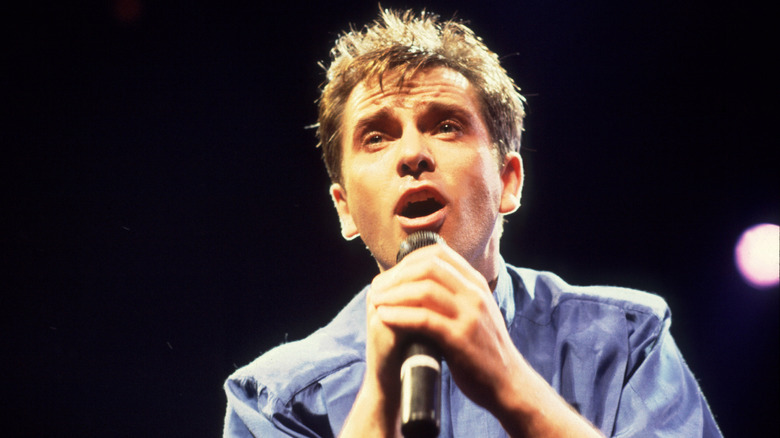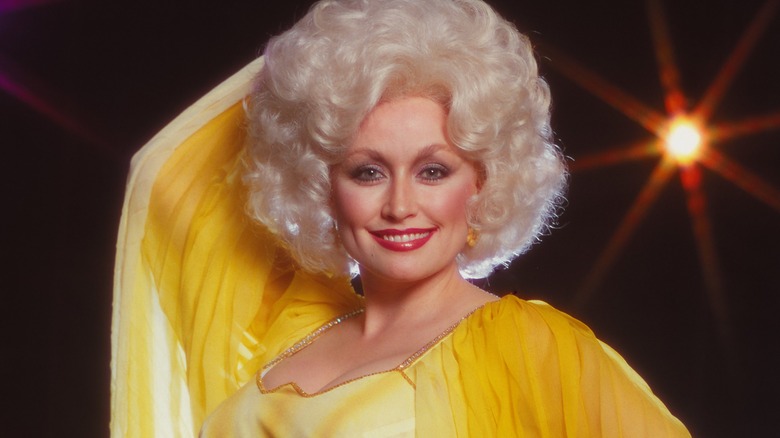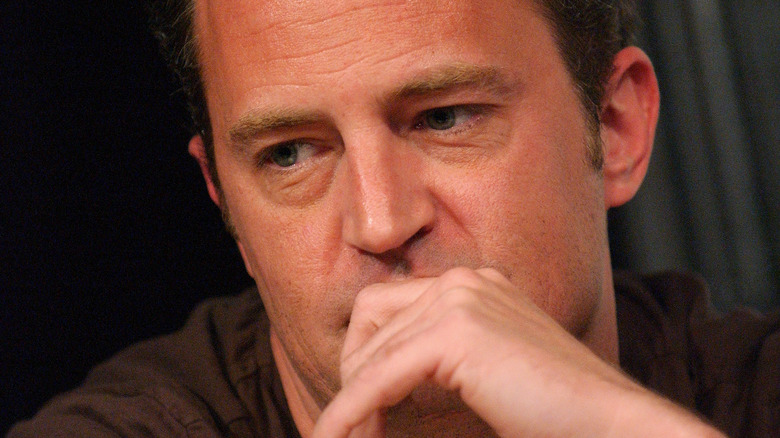The Inspiration Behind Peter Gabriel's Don't Give Up
One of the most charming aspects of the arts is how elements across space and time can come together in the imagination to spawn a new idea. Peter Gabriel has spoken often about how that happened to him in the writing of his hit duet "Don't Give Up." In a 1986 interview with Spin, Gabriel described himself in England under Margaret Thatcher, looking at photographs Dorothy Lange took in America during the Great Depression. The collection was titled "In This Proud Land," and it struck a chord with the musician.
He connected the anguish of the Depression to the high unemployment and fraying social order of England at the time. "Without a climate of self-esteem, it's impossible to function," he said, feeling that the lack of jobs was taking a heavy psychic toll on people. From there, Gabriel grew the idea of a song that would present a couple — a man and a woman — whose relationship was being strained by economic woes. He would later describe it as "an odd song" to The Quietus, but odd or not, it spoke to listeners. According to Official Charts, "Don't Give Up" reached No. 9 on the U.K. charts in 1986 and spent 11 weeks in the Top 100.
Gabriel originally wanted Dolly Parton for the duet
"Don't Give Up" was always meant to be a duet between male and female singers. Given that Peter Gabriel's initial inspiration for the song came from photographs of Depression-era America and because he drew on American music in his writing process, the initial goal for the recording was to get an American singer. The former Genesis singer told The Quietus that Dolly Parton was the first choice recommended to him.
The suggestion was taken seriously enough that Gabriel approached Parton with an offer, but he says she turned him down. "I'm glad she did," he told The Quietus, not because of any hard feelings against Parton, but because of who he ended up partnering with on the original recording: Kate Bush. The English singer couldn't bring an American flavor to "Don't Give Up," but Gabriel credits her performance for much of the song's "power."
As for Parton, she later approached Gabriel about performing "Don't Give Up" with her on television. This time, he turned her down due to his touring schedule. But when Gabriel rerecorded the song in the 2010s, his new partner was Norwegian singer Ane Brun — in part because Gabriel thought her singing bore a resemblance to Parton's.
Elton John and Matthew Perry were deeply moved by the song
Peter Gabriel told The Quietus that a song's potential impact isn't something that can be considered in the writing process. But in the years since its release, fans have let him know just how much "Don't Give Up" has meant to them. "A number of people have written to me and said they didn't commit suicide because they had that song on repeat or whatever," he said. And there have been a few celebrity listeners who've publicly spoken about its influence on them.
One of these high-profile fans is Sir Elton John, who credited "Don't Give Up" with helping him to quit drugs and alcohol. Interviewed for the BBC program "The Kate Bush Story: Running Up That Hill" (via the Irish Examiner), John said of the song: "This was one record that saved my life." He singled out the lyrics sung by Bush — "Rest your head / You worry too much / It's going to be all right / When times get rough you can fall back on us / Don't give up" — as speaking the most to him at that period in his life.
Matthew Perry had a comparable relationship with "Don't Give Up." While promoting his memoir on "Q with Tom Power," he was asked what the book's soundtrack would be, and he immediately named Gabriel's song. "It's saying 'Don't give up,'" he said. "I mean come on, how am I not going to like that?" He wrote "Don't give up" while signing copies of his memoir, and the song was played at his funeral (per American Songwriter).
If you or anyone you know needs help with addiction issues, help is available. Visit the Substance Abuse and Mental Health Services Administration website or contact SAMHSA's National Helpline at 1-800-662-HELP (4357).
If you or someone you know is struggling or in crisis, help is available. Call or text 988 or chat 988lifeline.org.


